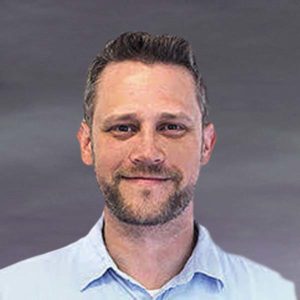
Southland Industries CEO Ted Lynch brings a unique perspective to the job, having started out with the engineering and contracting company as an intern and working his way up to the top.
Before being named CEO in 2011, he grew Southland’s Mid-Atlantic Division’s annual volume from $32 million to $126 during his time as division leader, and under his leadership as CEO, Lynch has pushed Southland to adopt innovative new technologies, including advanced fluid dynamics modeling that was adopted from the automotive and aerospace industries. Lynch also received his doctoral degree in architectural engineering from Penn State University, and co-founded the Partnership for Achieving Construction Excellence (PACE).
Chief Executive sat down with Lynch to talk about the unique perspective he’s gained in 20-plus years with the same organization, how the engineering and construction industry is evolving and what he looks for form management within his team.
Q: What were some of the big lessons you learned while moving up within Southland Industries from intern to CEO?
A: The fact that I’ve spent my whole career here and worked my way up from intern to where I am now is a unique situation. You don’t see too many people stay with the same company that long. I never imagined myself as CEO and never planned for it. It’s been an interesting ride, and to be where I’m at today, I’m certainly as surprised as anyone and I feel very fortunate to have the opportunity.
The opportunity to see all of the different parts of our business and to work in many different locations allowed me to understand the nuts and bolts of what the company is about and what we do. I think that gives me the unique perspective sitting where I am today.
“Having the experience of seeing it all and doing it has been really invaluable to me as I sit in the CEO position.”
I think I’ve seen just about everything and nothing really surprises me. After my internship, when I started full-time with the company I asked to go work out on a construction crew to see what that was about.
One of the early lessons I learned from that was, despite the reputation of construction workers, most of these guys want to work hard and put a full day’s work in, but the things that prevented us from doing that were typically management impacts. For example, did we have the up-to-date drawings and information we needed? Did we have the right tools and materials? So there were all these things that could be very frustrating for a construction worker that played into my mind as I became a manager later.
Having the experience of seeing it all and doing it has been really invaluable to me as I sit in the CEO position.
Q: Is it a challenge getting clients to understand the full scope of Southland’s scope of capabilities as a full-service design and construction firm?
A: Since the company’s inception we’ve always done engineering and construction, so we’ve always billed ourselves as design/builders. But I think it’s always been a challenging sale for us, because most of the industry doesn’t operate that way.
Going back to my experience with the company, having seen the engineering and construction capabilities first-hand, one of the things I saw as an opportunity was a much tighter integration of those functions, and of building operations, too.
So I would say this is the next evolution of the industry—it’s not just an integration of design and build, it’s bringing in all of the different parts and players in a construction project in at one time at the beginning of a project and having them work together. It’s a much more evolved approach.
Q: What are the key attributes you look for in candidates when adding to your leadership team at Southland?
A: If you look at our company, we’ve grown a lot and have aspirations to be a fairly large organization, so the first thing I’m looking for is people with experience with large organizations. Being that this is the only company I’ve ever worked for, it’s helpful to have people that have the larger project experience to share that and tell me this is what it really should look like.
Team chemistry is important. Not only the chemistry I have with that person, but it’s important that my entire leadership team gets to know that candidate before we hire them and that they fit in well, have that collaborative approach and that our team can work together with that person.
And it’s really important that they know the position, have done it before and have experience and a track record of success. They should be the expert when they come in.







